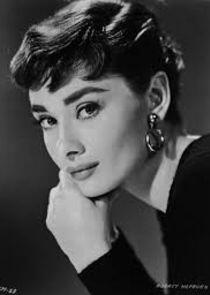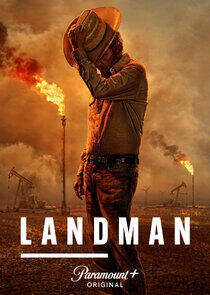
Audrey Hepburn
Born into an aristocratic family in Ixelles, Brussels, Hepburn spent parts of her childhood in Belgium, the United Kingdom and the Netherlands. She attended boarding school in Kent from 1936 to 1939. Hepburn returned to the Netherlands with the Second World War's outbreak. She studied ballet at the Arnhem Conservatory during the war. By 1944, Hepburn was performing ballet to raise money to support the resistance. She studied with Sonia Gaskell in Amsterdam from 1945 to 1948 and then with Marie Rambert in London.
Hepburn began performing as a chorus girl in West End musical theatre productions and then had minor appearances in several films. She rose to stardom in the romantic comedy Roman Holiday (1953) alongside Gregory Peck, for which she became the first actress to win an Academy Award, a Golden Globe Award and a BAFTA Award for a single performance. The same year, Hepburn won a Tony Award for Best Leading Actress in a Play for her performance in Ondine. She went on to star in a number of successful films, such as Sabrina (1954), with Humphrey Bogart and William Holden; Funny Face (1957), a musical in which she sang her own parts; the drama The Nun's Story (1959); the romantic comedy Breakfast at Tiffany's (1961); the thriller-romance Charade (1963), opposite Cary Grant; and the musical My Fair Lady (1964).
In 1967, Hepburn starred in the thriller Wait Until Dark, receiving Academy Award, Golden Globe and BAFTA nominations. After that role, she only occasionally appeared in films, one being Robin and Marian (1976) with Sean Connery. Her last recorded performances were in Always (1989), an American romantic fantasy film directed and produced by Steven Spielberg, and the 1990 documentary television series Gardens of the World with Audrey Hepburn, for which she won a Primetime Emmy Award for Outstanding Individual Achievement – Informational Programming. Hepburn won three BAFTA Awards for Best British Actress in a Leading Role and BAFTA's Lifetime Achievement Award: the Golden Globe Cecil B. DeMille. She was also recipient of a Screen Actors Guild Life Achievement Award and the Special Tony Award. In 1994, Hepburn's contributions to a spoken-word recording titled Audrey Hepburn's Enchanted Tales earned her a posthumous Grammy Award for Best Spoken Word Album for Children.
Later in life, Hepburn devoted much of her time to charity. She contributed to UNICEF, from 1954 onwards. Between 1988 and 1992, she worked in some of the poorest communities of Africa, South America, and Asia. In December 1992, Hepburn received the US Presidential Medal of Freedom in recognition of her work as a UNICEF Goodwill Ambassador. Hepburn died of appendix cancer at her home in Tolochenaz, Switzerland in 1993.
Biography from the Wikipedia article Audrey Hepburn. Licensed under CC-BY-SA. Full list of contributors on Wikipedia.
Known For
Recently Updated Shows

NCIS
NCIS (Naval Criminal Investigative Service) is more than just an action drama. With liberal doses of humor, it's a show that focuses on the sometimes complex and always amusing dynamics of a team forced to work together in high-stress situations. Leroy Jethro Gibbs, a former Marine gunnery sergeant, whose skills as an investigator are unmatched, leads this troupe of colorful personalities. Rounding out the team are Anthony DiNozzo, an ex-homicide detective whose instincts in the field are unparalleled and whose quick wit and humorous take on life make him a team favorite; the youthful and energetic forensic specialist Abby Sciuto, a talented scientist whose sharp mind matches her Goth style and eclectic tastes; Caitlin Todd, an ex-Secret Service Agent; and Timothy McGee, an MIT graduate whose brilliance with computers far overshadows his insecurities in the field; Assisting the team is medical examiner Dr. Donald "Ducky" Mallard, who knows it all because he's seen it all, and he's not afraid to let you know. From murder and espionage to terrorism and stolen submarines, these special agents travel the globe to investigate all crimes with Navy or Marine Corps ties.

Landman
Set in the proverbial boomtowns of West Texas, Landman is a modern day tale of fortune seeking in the world of oil rigs. The series is an upstairs/downstairs story of roughnecks and wildcat billionaires fueling a boom so big, it's reshaping our climate, our economy and our geopolitics.

The Creep Tapes
Based on a collection of videotapes in the secret vault of the world's deadliest and most socially uncomfortable serial killer, who hires his victims to film him for the day under false pretenses, each episode exposes a new victim from one of the fabled 'Creep Tapes'.

America's Funniest Home Videos
ABC's longest-running primetime entertainment show, America's Funniest Home Videos, returns for season 36 this fall with the same mission -- giving families something genuinely funny to enjoy together on Sunday nights.
"AFV," the longest-running primetime entertainment show in ABC history, returns for season 36 with the same mission - to provide viewers with hysterical moments that fly by at a dizzying pace.

The Real Housewives of Potomac
Just up the river from our nation's capital lies a hidden gem—Potomac, Maryland. Its rolling hills, gated mansions, sophisticated prep schools, and exclusive country clubs all serve to keep the area invitation-only. Sprinkled throughout this community are a handful of old-line, wealthy African-American families who have historically broken racial barriers to provide a life of privilege for their children. The Real Housewives of Potomac follows the upscale lives of six intriguing, well-to-do women: Gizelle Bryant, Katie Rost, Karen Huger, Charrisse Jackson-Jordan, Robyn Dixon, and Ashley Darby, all of whom have fought for their places in this society by way of legacy or marriage. In a town where entry is granted only through class, pedigree, and lineage, how far will these ladies go to secure their spot at the top of this prestigious circle?
